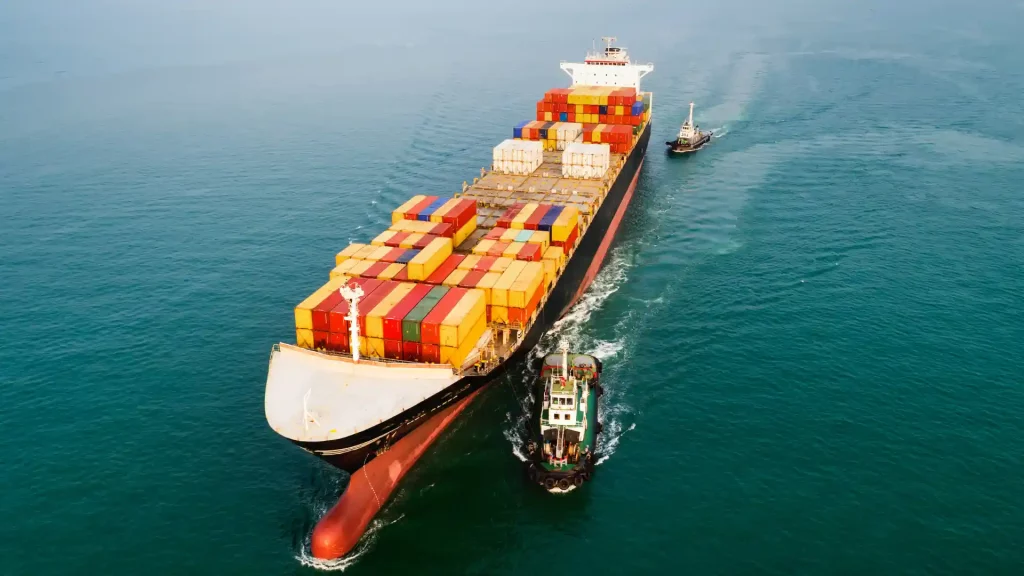Houthis, an Iran-backed militia in the Red Sea, are continuously attacking one of the world’s busiest trade routes. They have effectively closed the route for most container ships and vessels carrying almost everything from one corner of the globe to another.
A prolonged Red Sea conflict and rising Middle East tensions drastically affect the global economy. It is pushing oil prices higher, leading to inflation in several countries. A disturbed transport route is also disrupting energy supplies.
Houthis, an Iran-backed militia in the Red Sea, are continuously attacking one of the world’s busiest trade routes. They have effectively closed the route for most container ships and vessels carrying almost everything from one corner of the globe to another.
The closure of the waterway that connects the Suez Canal could hamper the entire global supply chain, inflating the prices of manufactured products at a time when the majority of the world’s developed countries are facing recession fears, namely, the United Kingdom, Germany, and the United States.
The Suez Canal handles nearly 10-15% of the entire world’s trade, including crude exports and global container shopping volumes of around 30%.
The Houthis are a Yemen-based militant group who are seeking revenge for Israel’s war against Hamas In Gaza on their grounds. This has roped in the militaries of the US and its allies and made the Red Sea just a step away from a war zone. They have sent their naval forces to provide maritime security to their cargo shipments and counter the attacks.
The President of the United States, Joe Biden, said that they will respond directly and come in contact with the militia that is threatening the freedom of navigation in one of the world’s most crucial waterways.
This has now added to the pressures in the US and the UK as Biden and Sunak gear up for re-election this year. The present Middle East conditions can impact the prospects of an economic recovery and, consequently, their vote banks.
The World Bank released a report last week warning that the troublesome situation of the crucial shipping lines is wrecking the global supply network and fueling the concerns of inflationary hazards.
It also mentioned that the other dangers it poses are real interest rates, continuous inflation, weaker-than-expected growth of the Chinese economy, trade isolation, and climate change-related disasters.
Maersk, MSC, CMA, CGM, ZIM, Hapag-Lloyd and ONE, six out of the ten biggest container shipping companies, are completely or to a great degree avoiding the Red Sea route because of the danger of getting attacked by the Houthis.
The crew, cargo and vessels are directly prone to threats from the militia. This has led them to change their sea route and opt for going around the Cape of Good Hope in South Africa, which is an extra 3,000 nautical miles and around 8-10 days of extra journey.
Vincent Clerc, CEO of Maersk, said to the Financial Times that resuming the safe transport of goods from the Red Sea can take several months and that this will significantly impact global economic growth.
The Global Kiel Institute for the World Economy said last week that the global trade tanked 1.3% from November to December based on the repercussions of the attacks on cargo ships in the Red Sea.
John Llewellyn, an ex-chief economist at the Organisation for Economic Co-operation and Development (OECD), said that these attacks have become a serious problem. He had predicted that world trade could get disrupted by 30%, hitting 10% above a week ago. This danger has escalated to a level where it could even spread to the Strait of Hormuz and the broader Middle East.
The ongoing Israel-Hamas war is one of the main reasons for Hamas’s activities, and if the war spreads into a regional conflict or if the Houthis decide to increase their attacks on oil tankers and bulk carriers that carry raw materials like iron ore, timber, etc. then the after-effects on the global economy would be much more severe than expected.
Delays and higher costs
A spokesperson for the European Automobile Manufacturers Association said that they had changed their routes to go around the southern tip of the South African continent, which has increased their costs and delayed the shipments by an additional two weeks.
Similarly, the Swedish furniture company IKEA has cautioned of probable shortage of certain products. Next, a British clothing retailer announced that if the situation in the Suez Canal is not controlled, then they might face delays in stock supplies in the early part of this year.
Judah Levine, head of research at Logistics firm Freightos, said that the ‘all-in-prices’ of $5,000-$8,000 per container for transportation on major trade routes based out of Asia are 2.5 to 4 times the normal levels of his year.
The global shipping capacity will be in chains for some while, especially the routes of Asia to Europe shipments that take an additional 8 weeks for rerouting. Even if the attacks are stopped, and vessels begin to pass via the Red Sea, the disruptions and delays will take a substantial amount of time to get back to normal.
